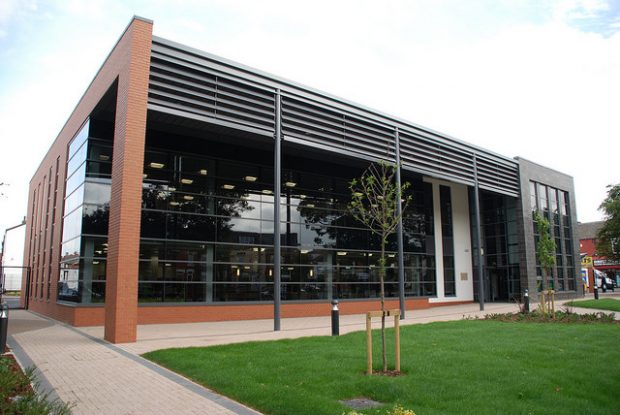[Editor’s note: Lee Hemsworth, Chief Officer for Customer Access at Leeds City Council (which includes responsibility for the library service), spoke at one of the Taskforce masterclasses that covered the strategic planning toolkit and benchmarking framework]
It was great to get the opportunity to speak at the Libraries Taskforce Masterclass in November and share some of Leeds’ perspective about strategic planning.
At the session, I talked briefly about the approach Leeds had already taken to review service provision and provide this in a more integrated way. For those who were unable to attend the session, I just wanted to say a little more about the process we undertook and the progress we have made – and I’m not saying its perfect, or even the right approach for every authority, far from it - there are still things to learn and improve upon, but the journey we are undertaking means that every step is an improvement on the last. The process has enabled Leeds to think a little bit more about the services we offer, their purpose and impact, and challenge ourselves a lot more about why we do what we do, and look at whether it is simply because that’s how things have always been done, rather than it being the best way.
Best council
Simply put, Leeds City Council’s ambition is to be the best council. We want people, businesses and students to look at the city and actively want to be here. This isn’t a braggart position, but why would any service want to aspire to being 2nd placed? With this backdrop overlaid by the economic pressures the local authority faced, on top of increasing financial hardships being experienced by too many of the city’s residents, it was only right that a wide range of service reviews would be undertaken to try to identify how we could achieve the same level (or better) provision of services for a substantially reduced budget, ensuring that the most vulnerable are not further disadvantaged by the removal of vital local services, but supported through improved access to the services they need.
In Leeds, a wide range of face to face services have developed over time, including libraries, housing offices, job shops, One Stop Shops (for council tax and benefits advice), etc. all with their own management structures and ways of working. Very few of these services were located in the same buildings within communities – and where the services did share the same space, there might be two or even three separate reception desks – confusing for customers and expensive to run.
Creation of community hubs
Against some of the other services, for example, the emergency provision of food vouchers, libraries could have been seen as a secondary service. However, it was readily recognised that libraries sit at the centre of many communities; if not geographically, perhaps emotionally. People recognise them as safe places, and places to go for information and support. With this in mind, we began a process, starting with a pilot of just three centres, of creating community hubs. These centres had been libraries previously; two of which, following PFI refurbishment, contained other co-located services. They were Armley and Compton Road libraries, and Middleton library that became the St Georges Centre.
The pilot would aim to integrate the physical space requirements of the services, as well as the front line staffing, within a single management structure. Specialist staff remained to help with more detailed advice, including librarians; but from the initial point of contact, customers would be helped and supported and be referred only when necessary, not as a matter of course.

Following the success of the pilot sites, all community library sites, housing offices and job shops were moved, along with staffing, into the Customer Access structure, and we began a long process of reducing the overall asset base of approx. 45 buildings into what will eventually become 33 community hubs.
For Leeds’ libraries, the additional benefit of much needed capital investment, provided through the community hub development programme, has hugely helped to alleviate problems of historical underinvestment, and the synergies between the services now co-located has been seen to attract many new or lapsed library users, as well as established library users now accessing services previously unavailable to them in their immediate community.
Challenges
There have been many challenges, but perhaps the most relevant to mention here has been the challenge of integrating cultures. Many of the newly co-located services are accessed because of necessity - you have to pay your council tax, you must apply for housing benefit, you need to visit your GP - but with libraries, you want to borrow a book, you would like to attend an event. In an ideal world, you would reduce the need for the former and increase the demand for the latter.
In response to this challenge, the library service is developing its own strategy to be the best, linking in with the themes outlined in the Ambition document. They are actively and firmly placing themselves as a ‘must have’ service, where other local authority and partner services are aware, and recognising the value of, libraries and seeking out this service for its support to help them deliver their agenda. Progress has been made with the library service now leading on the city’s agenda for digital inclusion (see previous blog which mentions our 100% Digital Leeds project) and I’m sure many more similar initiatives will follow.
For news about what is happening in Leeds libraries, follow them on twitter.
----------------------------------------------------
Please note, this is a guest blog. Views expressed here do not necessarily represent the views of DCMS or the Libraries Taskforce
1 comment
Comment by Jean Summerscales posted on
Well done Leeds! This is brilliant strategy.